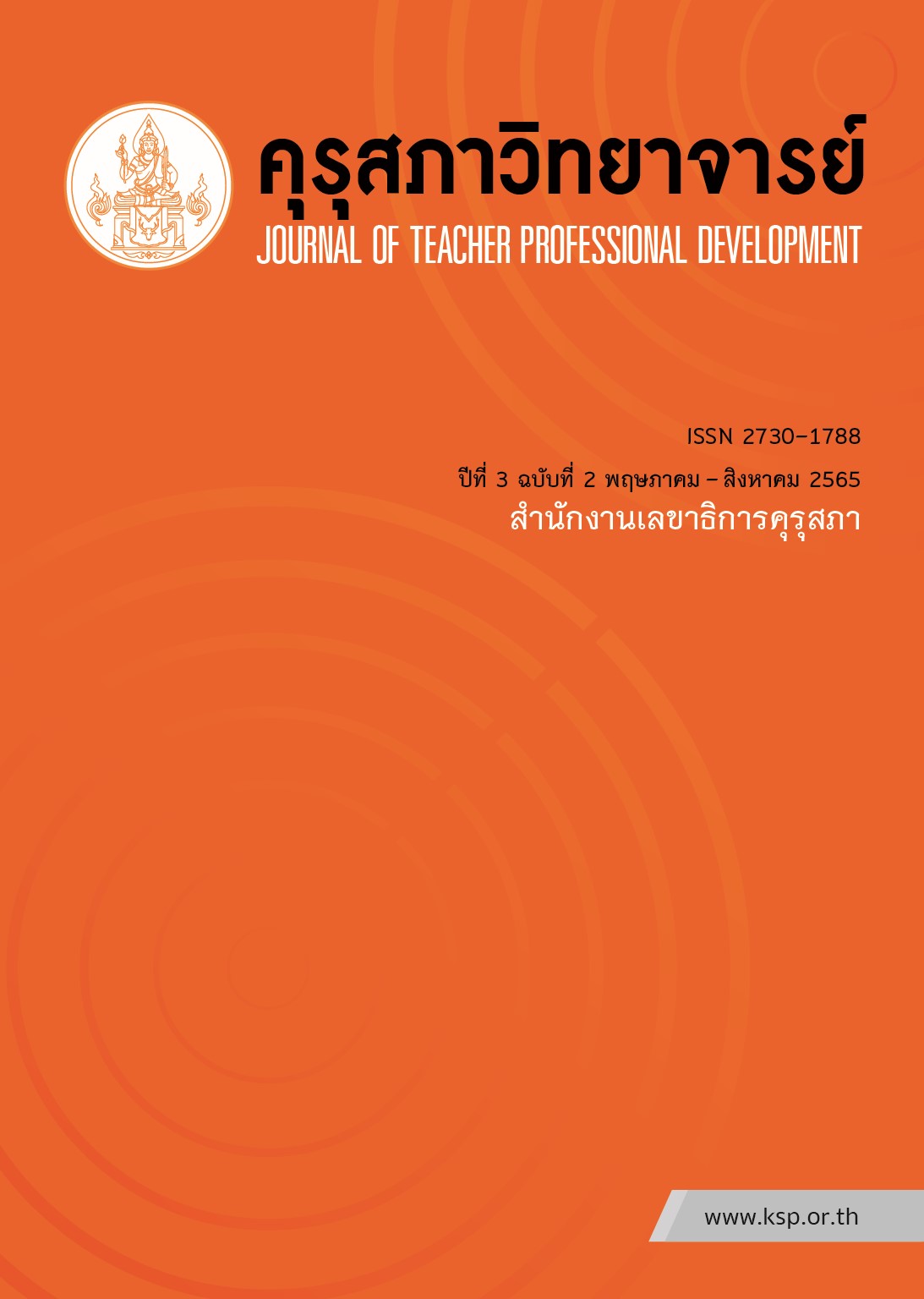การศึกษาปัจจัยทางประชากรศาสตร์และความพึงพอใจต่อรูปแบบการเรียนที่มีผลต่อความสามารถในการควบคุมตนเองในการเรียนออนไลน์ของนักเรียนชั้นมัธยมศึกษาตอนปลาย โรงเรียนสระกระโจมโสภณพิทยา
Main Article Content
บทคัดย่อ
To achieve the greatest output of online learning requires students' self-control. In the first semester of the academic year 2021, students at Sra krajomsophonpittaya School have begun studying fully online due to the outbreak of the coronavirus disease. Therefore, The researcher conducted this research to explore the students' desire to return to school and the online learning style that the students were satisfied. Moreover, the ability to self-regulation in online learning were examined and analyzed demographic factors affecting self-regulation in online learning. The results found that 92.2 percent of students wanted the school to open as a normal course. It was also found that more than 51.1% of students were satisfied with the on-demand learning style, 35.6% were satisfied with the blended learning style. and 13.3% were satisfied with full online learning. The self-regulation study in online learning found that environmental structuring of the student was at a good level, Goal setting, Task strategies, Time management, Help seeking, and Selfevaluation were in normal level.
Article Details
เนื้อหาและข้อมูลในบทความที่ลงตีพิมพ์ในวารสารคุรุสภาวิทยาจารย์ ถือเป็นข้อคิดเห็นและความรับผิดชอบของผู้เขียนบทความโดยตรง ซึ่งกองบรรณาธิการคุรุสภาวารสารไม่จาเป็นต้องเห็นด้วย หรือร่วมรับผิดชอบใด ๆ บทความ ข้อมูล เนื้อหา รูปภาพ ฯลฯ ที่ได้รับการตีพิมพ์ในวารสารคุรุสภาวิทยาจารย์ ถือเป็นลิขสิทธิ์ของวารสารคุรุสภาวิทยาจารย์ หากบุคคลหรือหน่วยงานใดต้องการนาทั้งหมดหรือส่วนหนึ่งส่วนใดไปเผยแพร่ต่อหรือเพื่อกระทาการใด ๆ จะต้องได้รับอนุญาตเป็นลายลักอักษรณ์จากวารสารคุรุสภาวิทยาจารย์ก่อนเท่านั้น
เอกสารอ้างอิง
Barnard, L., Lan, W. Y., To, Y. M., Paton, V. O., & Lai, S.-L. (2009). Measuring self-regulation in online and blended learning environments. The Internet and Higher Education, 12(1), 1–6.
Rosenbaum, M. (1980,Januayy). A Schedule for Assessing Self-Control Behavior: Preliminary Findings. Behavior Therapy. 11: 109-121.
Yamane, Taro. (1973). Problem to accompany statistics: an introductory analysis (3rd. ed). New York: Harper & Row.


